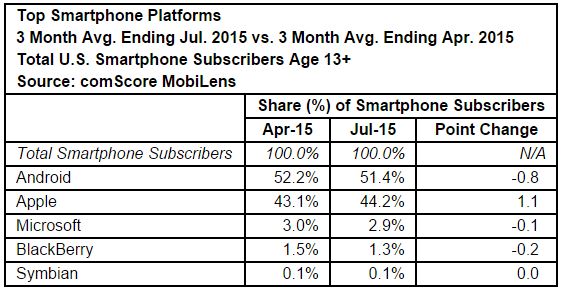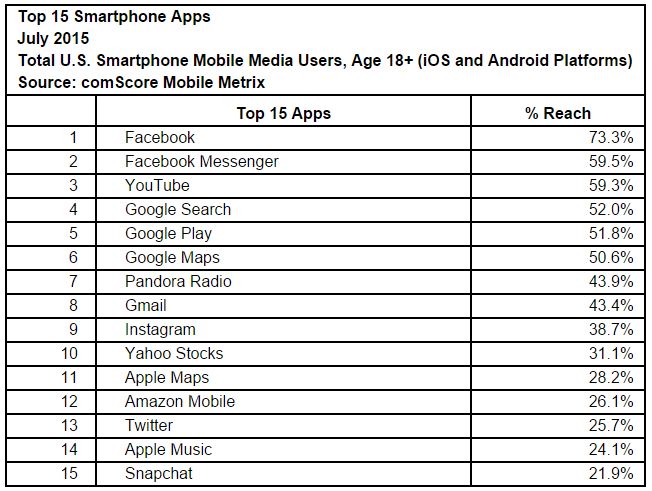comScore is out with the latest “smartphone wars” data reporting key trends in the U.S. mobile industry by platform, OS, and apps. The results will come as no surprise to those keeping close tabs on the OEM battle and other aspects surrounding our beloved handhelds.
According to data from MobiLens and Mobile Metrix – comScore’s measurement tools for device preferences, usage trends, demographics, etc – Apple continues to lead the pack on the hardware front, with 44.2 percent OEM (original equipment manufacturer) market share, followed by Samsung with 27.3 percent, LG with 8.7%, Motorola with 4.9%, and HTC with 3.5%. The numbers take into account smartphones as well as tablets.
OS-wise, Google ranks 1st with 51.4 percent market share, trailed closely by Apple with 44.2 percent, Microsoft with 2.9 percent, BlackBerry with 1.3 percent and Symbian with a measly 0.1 percent. Considering that Apple is lifting the cloth off a pair of new iPhones next month, it will be interesting to see if the scales tip in their favor on the platform front too. For now, both Apple and Google are winning and losing at the same time, depending on what you’re looking at: hardware or software. But considering that the big bucks come from hardware sales, it doesn’t take a degree in economics to realize who is bringing in the bacon.
Under comScore’s lens, Facebook, Facebook Messenger and YouTube emerged as the most used apps across both iOS and Android. Coming in at #4 was Google Search, followed by Google Play, Google Maps, Pandora Radio, Gmail, Instagram, Yahoo Stocks, Apple Maps, Amazon Mobile, Twitter, Apple Music and Snapchat. What on Earth happened in July that people suddenly became more interested in the stock market than Twitter?
The comScore press release offers more juicy numbers across three big tables. I’ve included them in the gallery below to save you the trip there. The OEM & platform numbers shouldn’t come as a shock to anyone. However, as noted above, these things tend to change a great deal quarter-over-quarter, especially when new devices (with new OSes on them) come into play 😉



Post A Reply